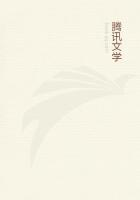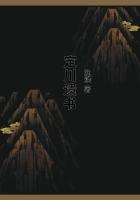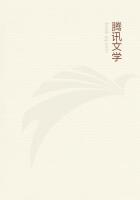Again, if the leading principle of the universe knows the future as it must- then obviously it will know by what means that future is to come about; given this knowledge, what further need is there of its reasoning towards it, or confronting past with present? And, of course, this knowledge of things to come- admitting it to exist- is not like that of the diviners; it is that of the actual causing principles holding the certainty that the thing will exist, the certainty inherent in the all-disposers, above perplexity and hesitancy; the notion is constituent and therefore unvarying.The knowledge of future things is, in a word, identical with that of the present; it is a knowledge in repose and thus a knowledge transcending the processes of cogitation.
If the leading principle of the universe does not know the future which it is of itself to produce, it cannot produce with knowledge or to purpose; it will produce just what happens to come, that is to say by haphazard.As this cannot be, it must create by some stable principle; its creations, therefore, will be shaped in the model stored up in itself; there can be no varying, for, if there were, there could also be failure.
The produced universe will contain difference, but its diversities spring not from its own action but from its obedience to superior principles which, again, spring from the creating power, so that all is guided by Reason-Principles in their series; thus the creating power is in no sense subjected to experimenting, to perplexity, to that preoccupation which to some minds makes the administration of the All seem a task of difficulty.Preoccupation would obviously imply the undertaking of alien tasks, some business- that would mean- not completely within the powers; but where the power is sovereign and sole, it need take thought of nothing but itself and its own will, which means its own wisdom, since in such a being the will is wisdom.Here, then, creating makes no demand, since the wisdom that goes to it is not sought elsewhere, but is the creator's very self, drawing on nothing outside- not, therefore, on reasoning or on memory, which are handlings of the external.
13.But what is the difference between the Wisdom thus conducting the universe and the principle known as Nature?
This Wisdom is a first [within the All-Soul] while Nature is a last: for Nature is an image of that Wisdom, and, as a last in the soul, possesses only the last of the Reason-Principle: we may imagine a thick waxen seal, in which the imprint has penetrated to the very uttermost film so as to show on both sides, sharp cut on the upper surface, faint on the under.Nature, thus, does not know, it merely produces: what it holds it passes, automatically, to its next; and this transmission to the corporeal and material constitutes its ****** power: it acts as a thing warmed, communicating to what lies in next contact to it the principle of which it is the vehicle so as to make that also warm in some less degree.
Nature, being thus a mere communicator, does not possess even the imaging act.There is [within the Soul] intellection, superior to imagination; and there is imagination standing midway between that intellection and the impression of which alone Nature is capable.
For Nature has no perception or consciousness of anything; imagination [the imaging faculty] has consciousness of the external, for it enables that which entertains the image to have knowledge of the experience encountered, while Nature's function is to engender- of itself though in an act derived from the active principle [of the soul].
Thus the Intellectual-Principle possesses: the Soul of the All eternally receives from it; this is the soul's life; its consciousness is its intellection of what is thus eternally present to it; what proceeds from it into Matter and is manifested there is Nature, with which- or even a little before it- the series of real being comes to an end, for all in this order are the ultimates of the intellectual order and the beginnings of the imitative.
There is also the decided difference that Nature operates toward soul, and receives from it: soul, near to Nature but superior, operates towards Nature but without receiving in turn; and there is the still higher phase [the purely Intellectual] with no action whatever upon body or upon Matter.
14.Of the corporeal thus brought into being by Nature the elemental materials of things are its very produce, but how do animal and vegetable forms stand to it?
Are we to think of them as containers of Nature present within them?
Light goes away and the air contains no trace of it, for light and air remain each itself, never coalescing: is this the relation of Nature to the formed object?
It is rather that existing between fire and the object it has warmed: the fire withdrawn, there remains a certain warmth, distinct from that in the fire, a property, so to speak, of the object warmed.For the shape which Nature imparts to what it has moulded must be recognized as a form quite distinct from Nature itself, though it remains a question to be examined whether besides this [specific] form there is also an intermediary, a link connecting it with Nature, the general principle.
The difference between Nature and the Wisdom described as dwelling in the All has been sufficiently dealt with.
15.But there is a difficulty affecting this entire settlement:
Eternity is characteristic of the Intellectual-Principle, time of the soul- for we hold that time has its substantial being in the activity of the soul, and springs from soul- and, since time is a thing of division and comports a past, it would seem that the activity producing it must also be a thing of division, and that its attention to that past must imply that even the All-Soul has memory?
We repeat, identity belongs to the eternal, time must be the medium of diversity; otherwise there is nothing to distinguish them, especially since we deny that the activities of the soul can themselves experience change.

